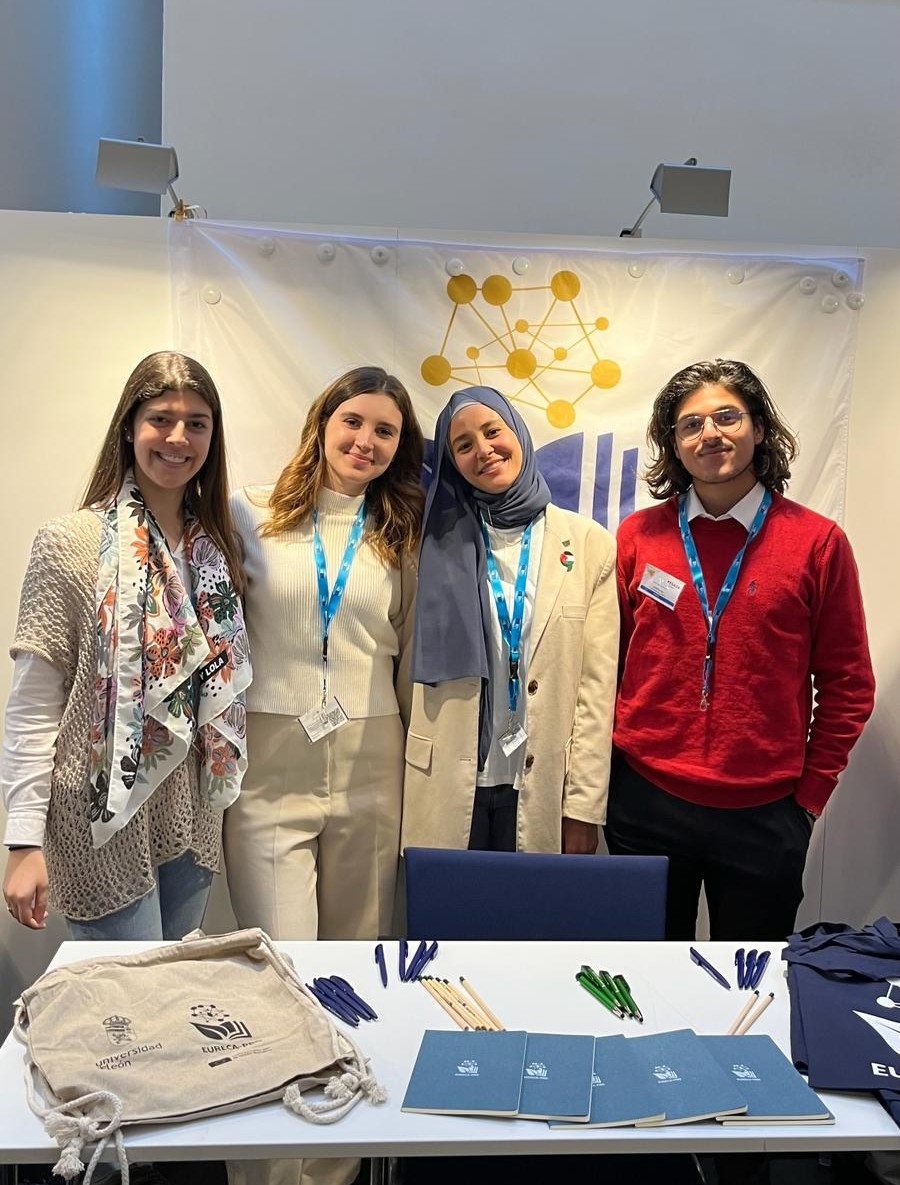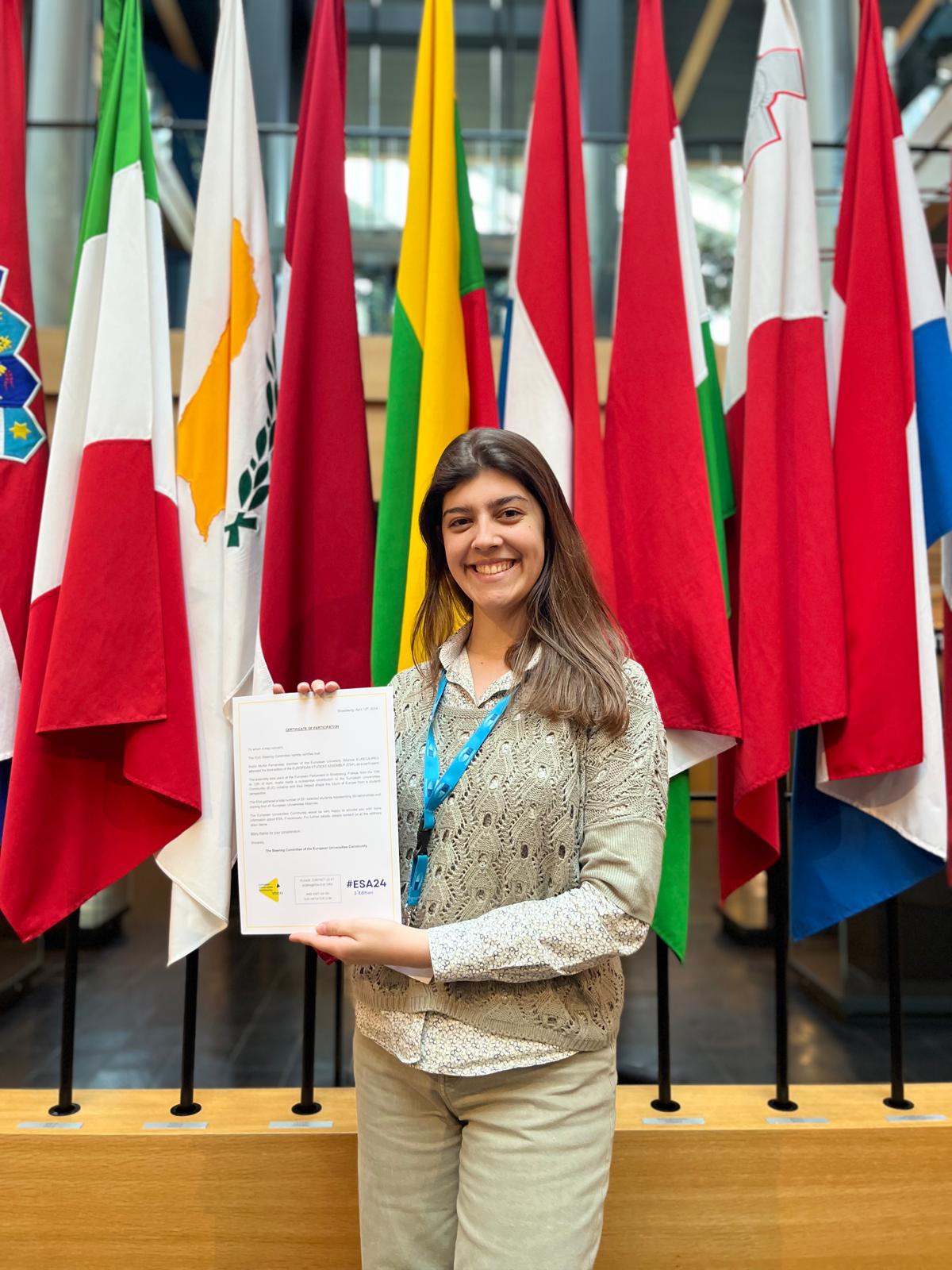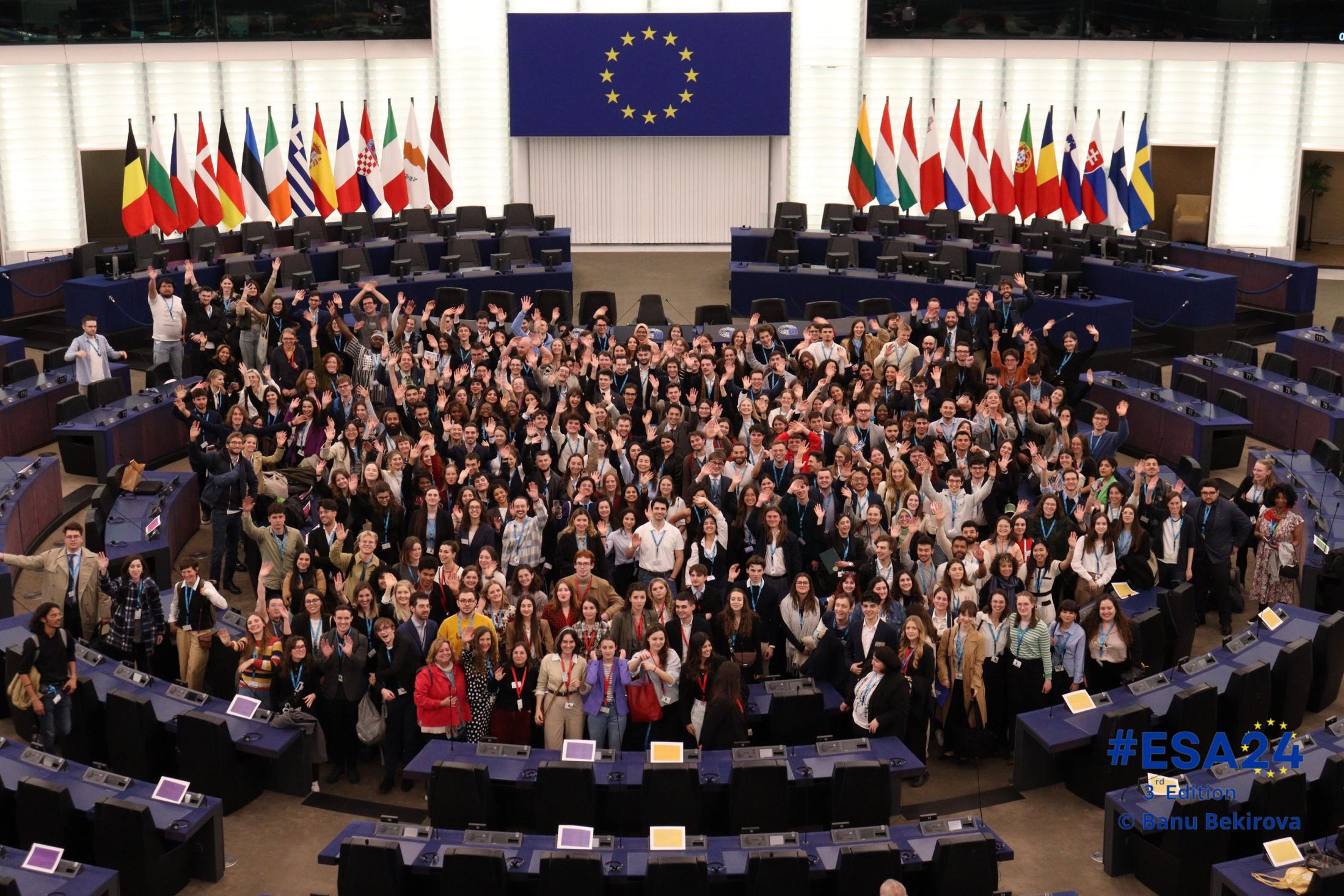From Policy Crafting to Friendship Making:
My Unforgettable Ride at ESA24 in Strasbourg
by Aralia Muñiz Fernández, EURECA-PRO student | 15 May 2024
In January of this year, I had the honor of being selected as a representative of the EURECA-PRO alliance (the European University on Responsible Consumption and Production) from the University of León. Of the 11 panels present at ESA24 this year, I had the pleasure of working on Panel 3 – Cohesion through budgetary policies: How can the EU’s budgetary policy participate in strengthening cohesion among its Member States? This role was not easily granted to me, as I had to go through a rigorous selection process.
The Selection Journey
Applications were open to students of all nationalities, fields, and levels of study, as long as they were registered in a higher education institution participating in one of the 50 Erasmus+ European University Alliances. I was not asked for a full CV, but I had to specify elements in three categories: education, work experience, and leisure activities/volunteering/skills. I had to provide concise and relevant experiences for each category.
In addition, I was asked to answer a series of questions that covered various areas. These included reflecting on what it means to participate in a deliberative assembly with other European students, the potential impact of the ESA on my ability to effect change in Europe, and how my knowledge and experience could contribute to the panels I chose. I was also asked about any action or project I had previously participated in that had a positive impact on my community.
After being selected and passing an internal interview with EURECA-PRO, my qualifications and skills were assessed. This marked the beginning of an incredible journey that took me to the European Student Assembly (ESA24) held at the European Parliament in Strasbourg.
One of the most important events in shaping the future of the union uniting students of Europe is the European Student Assembly 24. ESA24 takes place in the European Parliament located in Strasbourg, where young people could voice their opinions and participate in discussions, debates, and other workshops. The event is not only a chance to shape ideas but to propose policies as well. ESA24 is a platform allowing the EU project to gain strength and develop as the process of integration intensifies. It is about a united European spirit, collaboration, and a common intellectual cause.
The path to the assembly was challenging. My panel, along with ten others, participated in a rigorous preparation that included meetings with experts, workshops, and brainstorming sessions. It was a very global topic, and it took us several meetings to finalise the topic. But every meeting, every discussion, every moment of training, brought us closer to our goal.
Finally, our collective efforts culminated in the assembly held from April 10 to 12. During these days, we discussed and voted on our policy recommendations. We also participated in inter-panel debates, where I had the honour of attending Panel 8 – Cure of the Future and Panel 9 – A Place for Everyone.
But beyond the discussions and debates, what marked this experience for me was the opportunity to meet my colleagues in person. After months of online work, being able to share a unique moment with them, make friends with people from different countries, learn about cultures, and exchange knowledge, was truly enriching.
This experience not only deepened my understanding of European institutions, but also honed my skills in public speaking and policy writing. It was truly inspiring to see the commitment and passion of my assembly colleagues toward strengthening and expanding the European project. The collaboration, dedication, and intellectual exchange that occurred during the assembly were truly inspiring.
Our hard work paid off when our seven proposed policies were approved in the elections, a testament to the power of collective action and the importance of informed policymaking.
I want to express my deepest gratitude to the Community of European Universities for organising this remarkable event and to the University of Leon, it has been a pleasure and a privilege to be able to represent the university. I am particularly grateful to the EURECA-PRO alliance for their support throughout this process. I also want to express my gratitude to the members and coordinators of my panel for their valuable contributions and collaboration.





